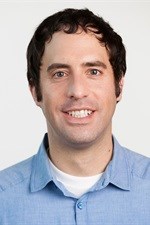
Top stories






More news






ESG & Sustainability
#Sona2026: President announces crisis committee to tackle SA's water challenges








However, from the outset there has been a very human side to Netflix's data operations which is outlined in a fascinating 2014 piece in The Atlantic called "How Netflix Reverse Engineered Hollywood". The story documents just how Netflix created 76,897 micro-genes to understand how people look for movies. Large teams of viewers, specially trained using a 36-page manual, were paid to watch the movies and then intricately and precisely tagged them with metadata. It was the efforts of this army of movie-watchers that aided Netflix in its effort to deconstruct Hollywood -- and in doing so, compile what is probably the largest stockpile of movie data in the world.
Whilst this data was able to tell the production team what they should be making, including some incredible granular detail as to specific actors and nuances, it couldn't tell them how to make a TV show. And this is the point that is missed by the many commentators who write floridly of how Netflix's algorithms will reduce creativity to a dystopian and soulless process; whilst their shows are based upon data insights as to what people want to watch, they repeatedly get there because of the applied expertise, opinion, analysis and excellence of real people.
That their model works so well shouldn't really come as a big surprise. Because when you think about it, Netflix did not identify a revolutionary approach, but used data as a natural extension of what studios (and indeed most commercial enterprises) have done for decades. In order to thrive and survive in a competitive market it is imperative to listen to your customers, find out their needs and wants, and figure out the best way to serve them. With all the attention paid to automating the levers and switches, we should never forget that the first mile and the last mile belong to analog, organic people. Just as it takes people to design and build the technology, it takes people to understand its limitations and it takes people to ask the questions that lead to meaningful insight.
At Exponential in the US, we worked with a client in the retail industry who was surprised to learn that our data identified a large Hispanic fan base shopping almost exclusively online. Based on our recommendations, the client revised the product lineup and display for both its online and retail stores to capture and leverage this previously unrecognised customer segment. They were impressed that our online data was a leading indicator of a shift in their business, but it is really just a new approach to a fundamental task: listening to what people want and provide that service to them.
After all a tidal wave of data is just that; entirely overwhelming unless you have people who can find the pattern and meaning and turn its suggestions into actionable insights. As media continues to fragment, stack, mesh and all of the other things that scare the old guard, businesses should be ensuring that they are hiring or appointing their own people with these kinds of smarts if they want to find, keep and expand their audience.
The marriage of data and human insight holds tremendous potential for most enterprises and is only just beginning to be realised. Advances in instrumentation and technology means that individual and aggregated behavioural models are getting more accurate by the minute. But to complement the astounding granularity of available data, you will always need someone to think laterally, read between the lines, make practical decisions... and add some magic.